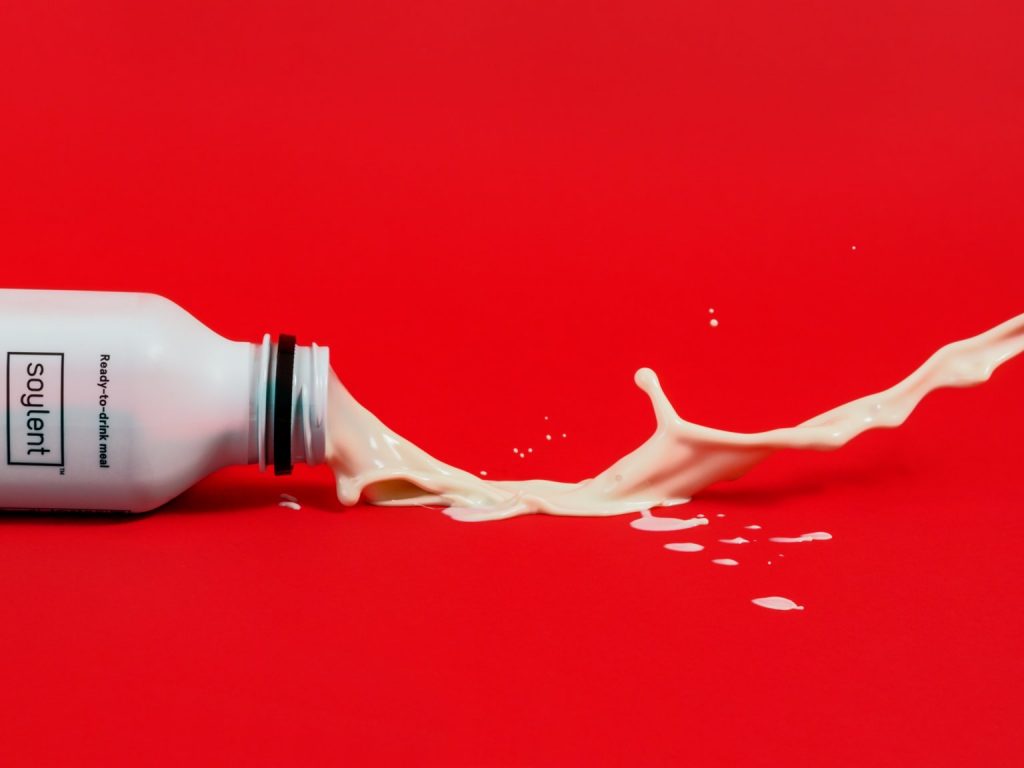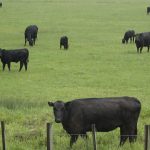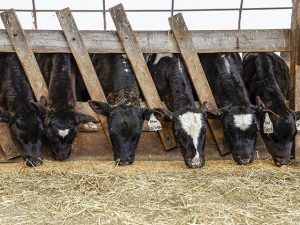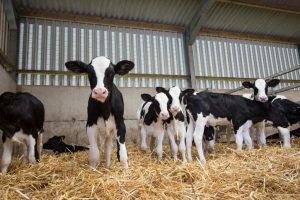
America may run on Dunkin’ Donuts coffee, but Silicon Valley runs on something else: Soylent, a meal-in-a-bottle that’s meant to contain all the nutrients you’d normally find in breakfast or lunch.
Pick up a bottle of the stuff and you’ll notice something else that sets it apart from many other American products. Each container is printed with a small stamp on the side resembling a strand of DNA.
“Produced with genetic engineering,” the label reads.
Soylent uses six ingredients made with the technique, meaning they fall under the label of “GMO” or genetically-modified organism. Those ingredients include its soy protein blend, one of its sweeteners, two kinds of oils or fats, along with its corn fiber and some of its flavorings.
The company decided to go public about its use of the technology nearly four years ago, when public distrust of GMOs was at an all-time high. At the time, sales of products made with the opposite kind of label — one that read “GMO-free” — was skyrocketing. But Soylent bucked the trend. In addition to adding the genetic engineering label to its products, the company came out with a series of billboards that read “Pro-GMO” and published a lengthy blog post explaining its decision to use the ingredients.
Soylent faced a fair amount of pushback for its decision at the time. Advocacy blogs and several journalists accused the company of hiding dangerous ingredients in its products; others called the approach a marketing stunt.
But Soylent CEO Bryan Crowley thinks his company made the right choice, he told Business Insider. Here’s why.
‘We think the pendulum is swinging in favor of the science’
Crowley thinks the tide on GMOs is finally starting to shift. People are increasingly embracing the approach, he said during an interview on the periphery of the Future of Food-Tech Conference in San Francisco.
“We think the pendulum is swinging in favor of the science,” Crowley said.
To his company, the decision to go public about their ingredients was less about marketing and more about following the consensus reached by researchers.
“It’s not about being pro-GMO. It’s about being pro-science,” he said.
The scientific consensus on GMOs is that they are not harmful.
Organizations like the National Academy of Sciences, the American Association for the Advancement of Science, and the European Commission have called GMO foods safe to eat. A large 2013 study on GMOs found no “significant hazards directly connected with the use of genetically engineered crops.”
Most of the food we eat today has been genetically modified in some way; everything from corn to watermelons have been selectively bred for thousands of years to give us the traits we find desirable, like large amounts of sweet, edible flesh or small seeds. Insulin, the medication that people with diabetes depend on to regulate their blood sugar, is also made with genetically modified ingredients.
Still, Crowley admits he was once hesitant about GMOs too. Roughly a decade ago, he assumed that GMO-free products were healthier than their GMO-containing counterparts, he said.
“I did very little research” at the time, Crowley said. “I just accepted it.”
But after digging into the peer-reviewed research, Crowley said he changed his mind. And he thinks others are beginning to do the same.
“People aren’t just accepting something because it’s on a package,” he said.






















